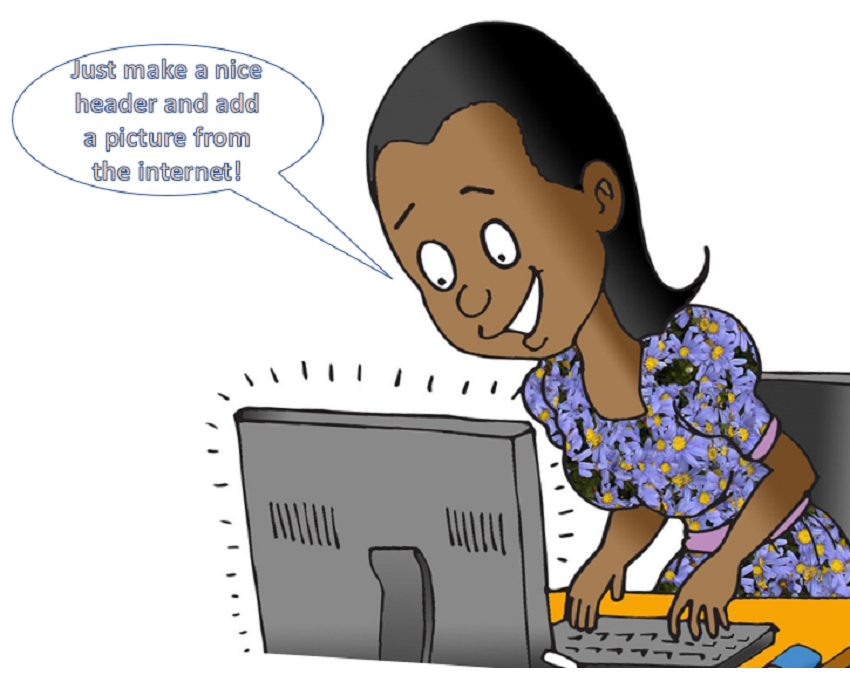Digital literacy – a challenge
March 3rd, 2020
A few weeks ago, Gretta and I were at a vocational training institute to introduce our e-courses on Integrated Water Resources Management, Gender in Agriculture, and Rural Extension Work. We spent half a day with four teachers from the Department of Agriculture. We showed them the e-courses and let them do parts of the course. After a while, I noticed that they had stopped. They were just sitting there not working. When I asked what the problem was, they said that they did not know how to continue. They were stuck on a drag-and-drop exercise, shown in the image below.

It’s not that they didn’t know the right answer, but they didn’t know how to drag and drop it. Instead of exploring and working out how to do it through trial and error, they just quit.
At that moment, I realised that an explorative attitude forms the basis of digital literacy. These teachers did not explore, but they were probably not alone in that.
An idea popped up in my mind: let’s make an e-learning about learning by doing and learning by trial and error. We could sell it to the teacher training department at the College of Education. Then I had to laugh. Who would be creating that e-learning? I showed the teachers how to drag and drop and they were back on track. After a while, they started to enjoy the course and they had fun while learning.
Next, we wanted to show them how to do the course in the classroom, with all the students in one group. We projected the course onto the whiteboard and discussed the right answer to a question. That was fun. Doing e-learning with a group works very well. But then came a question with an introductory video. The video did not show. The internet was too slow. Obviously, no teacher can risk having to wait five minutes in front of a class full of students before they can continue their lesson. So, I realised that we needed an off-line version of our courses if we want TVET and higher learning institutions to use them. That or their bandwidth would need to be dramatically improved.
To my surprise, two weeks later I learned that this as exactly what was going to happen. I participated in a workshop with the World Bank and the Ministry of Education to develop a Digital Skills Country Action Plan. The aim was to design a master plan to equip all students and teachers in higher learning institutions with adequate digital skills for the 21st century. The plan includes huge investment in bandwidth and internet connectivity. It also contains obligatory online courses in digital skills for all students and teachers. I am happy to hear that, according to the World Bank, these digital skills include the Four Cs: Critical Thinking, Creativity, Communication and Collaboration.
The World Bank’s guidebook for digital skills development even suggests creating an online repository of localised soft-skills training materials. Sounds to me like an opportunity for our Life Skills Academy (see Gerry’s blog) . Let’s go for it!
Jan Willem

